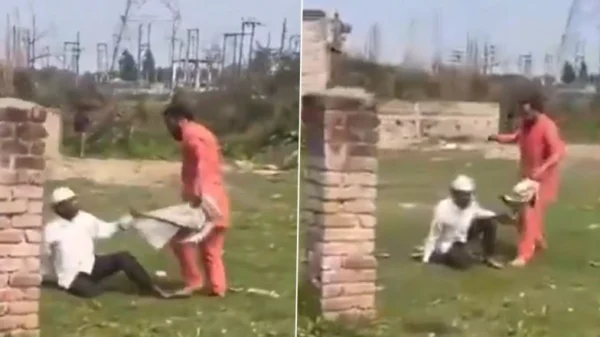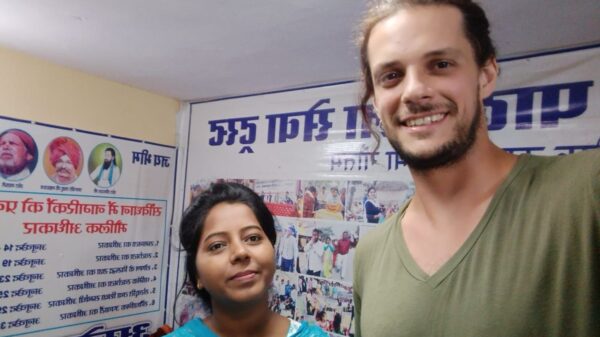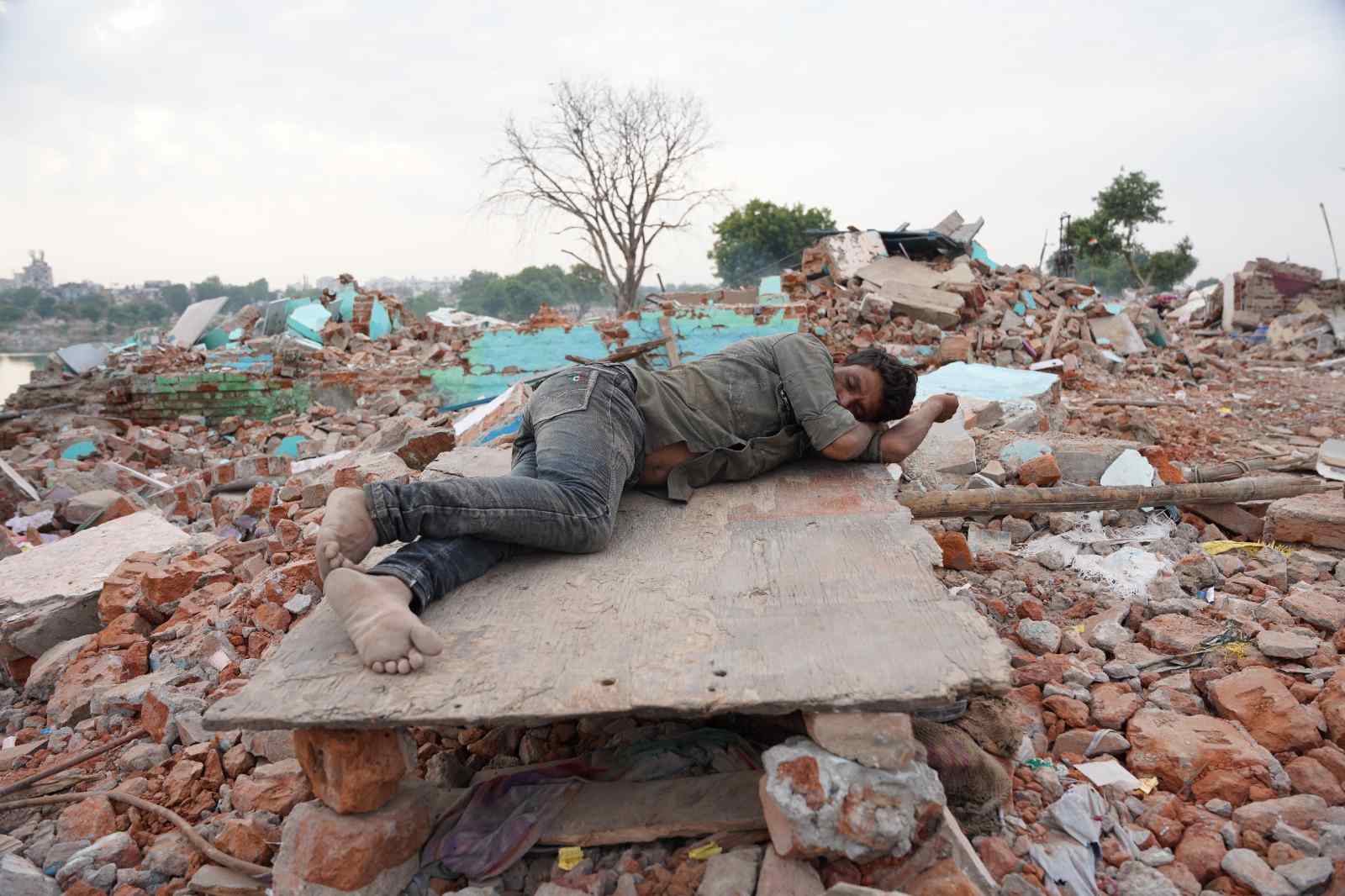In a demolition drive by the Ahmedabad Municipal Corporation (AMC), over 7,000 homes were torn down near Chandola Talab, displacing thousands of families and shattering their lives and livelihoods. The demolition, covering an area of more than 2.5 lakh square meters, began on Tuesday following a ruling by the Gujarat High Court that upheld state orders to clear structures deemed illegal on government land.
The High Court’s decision came after authorities insisted the water body near which these homes stood is government-owned, and all the houses built on its periphery were illegal encroachments. The demolitions began on April 28, with over 4,000 shanties dismantled in the areas of Siyasatnagar and Bengali Vaas, home primarily to Muslim families who work as labourers, rag pickers, and migrant workers from Bengal and Rajasthan.
Rafi, a longtime resident of the area, described the trauma and confusion of the demolition. “I have lived here all my life. My parents helped build this community. Suddenly, they just broke everything without proper notice. They said they are removing ‘Bangladeshis’ and illegal settlers. But what about the rest of us? We thought we would get alternative housing because we were told so,” he said.
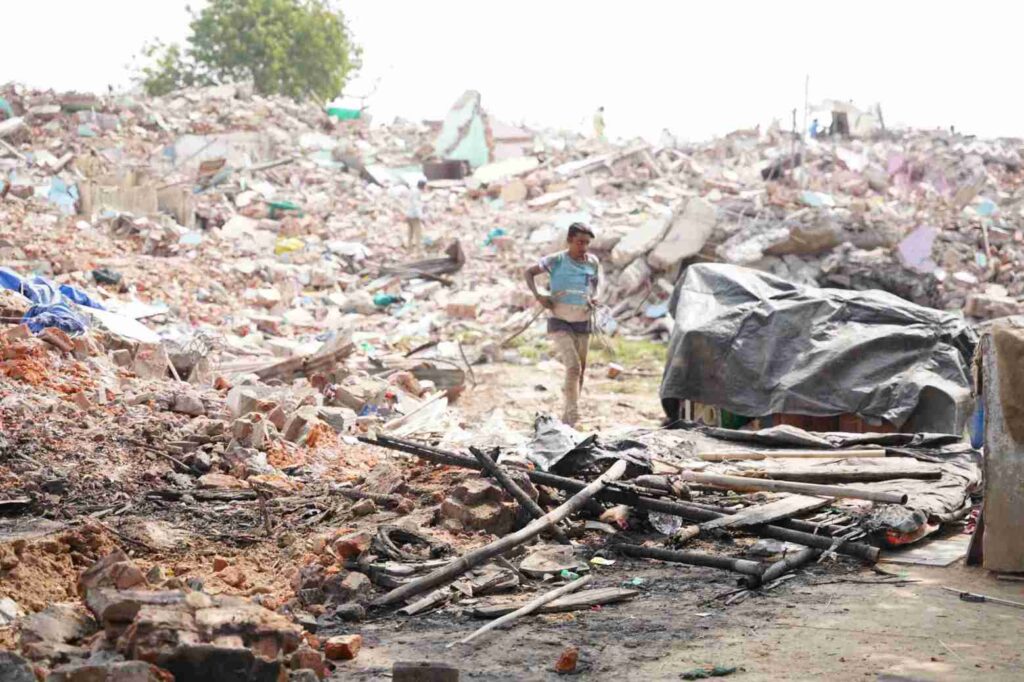
Rafi said that the AMC officials had told residents they would be rehoused but later demanded hefty deposits of ₹3,00,000 to ₹3,50,000 to secure new homes. “How can a poor person pay so much? We live hand-to-mouth,” he said, describing his family of five—himself, his wife, parents, and children.
More than 1,000 families, including many Muslims, find themselves homeless, with rent prices skyrocketing beyond their means. Rafi said, “We had about 500 to 1,000 houses here. We lived here for 40 years. My mother came here after marriage, and the government never asked us for papers. They should have regularized our homes instead of bulldozing them without warning.”
The decision to demolish these homes was influenced by the aftermath of the Pahalgam attack earlier this year. Authorities alleged that many in the settlement were “Bangladeshi infiltrators,” leading to widespread crackdowns and the detention of over 6,500 people for citizenship verification. Despite this, many detained—including women and children—were later found to be Indian citizens and released.
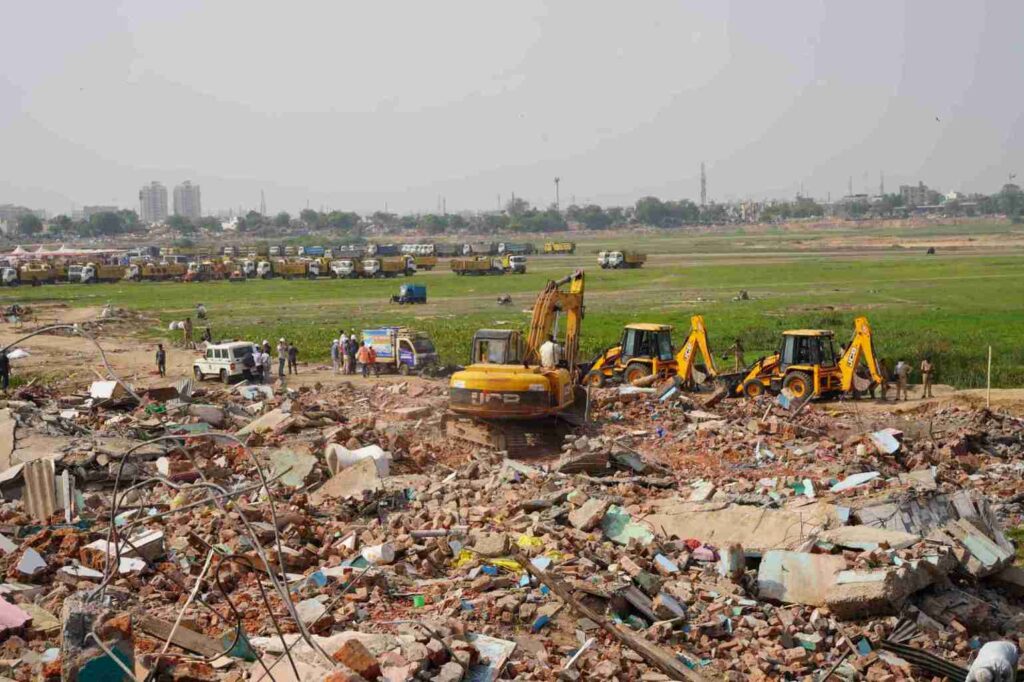
A resident shared his frustration, “We have lived here since childhood. Our kids studied here. It was once a forest, now it is a city. But suddenly, they call us Bangladeshis and want to remove us. They gave us only four days’ notice. What can we do in four days? No one is helping us find houses, not even water.”
Women from the community recounted the destruction of four mosques and the burial of holy Qurans and funeral shrouds in rubble. “They said they would not break the mosques, but in the morning, they came and destroyed three of them. No water, no food, no place to pray,” said one woman, holding back tears.
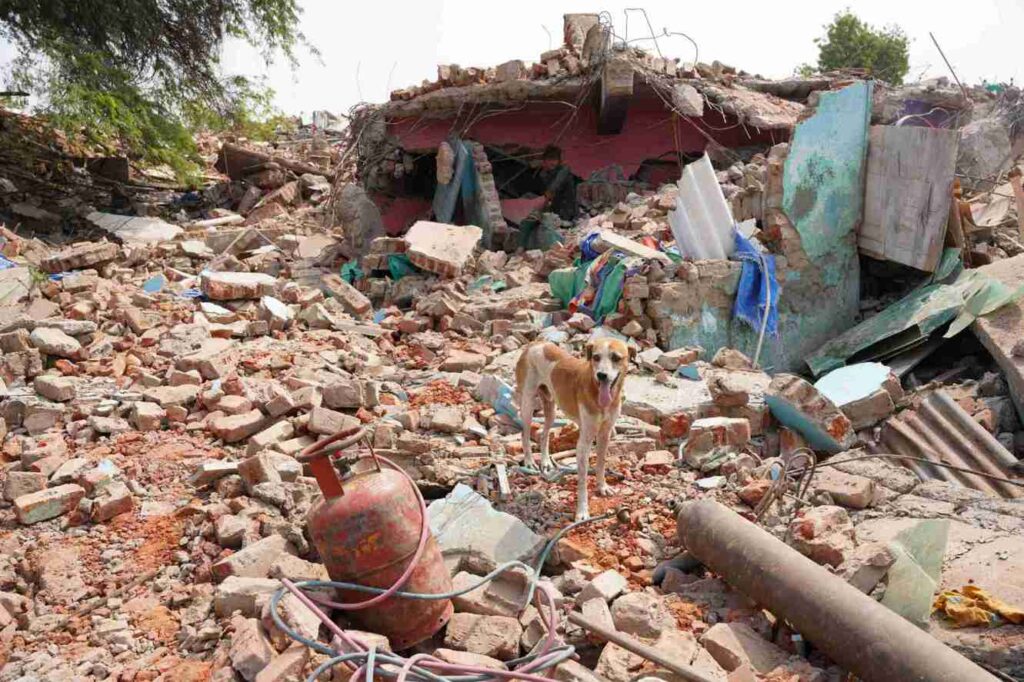
Elderly residents voiced strong objections to the government’s claims. “We are not from Bangladesh. We are locals, living here for decades,” said an older man. “If were were really illegal immigrants, why didn’t the police catch us before? They are just clearing space by throwing poor people out. They want to build parks and stadiums, but what about us? Are poor people not part of this country?”
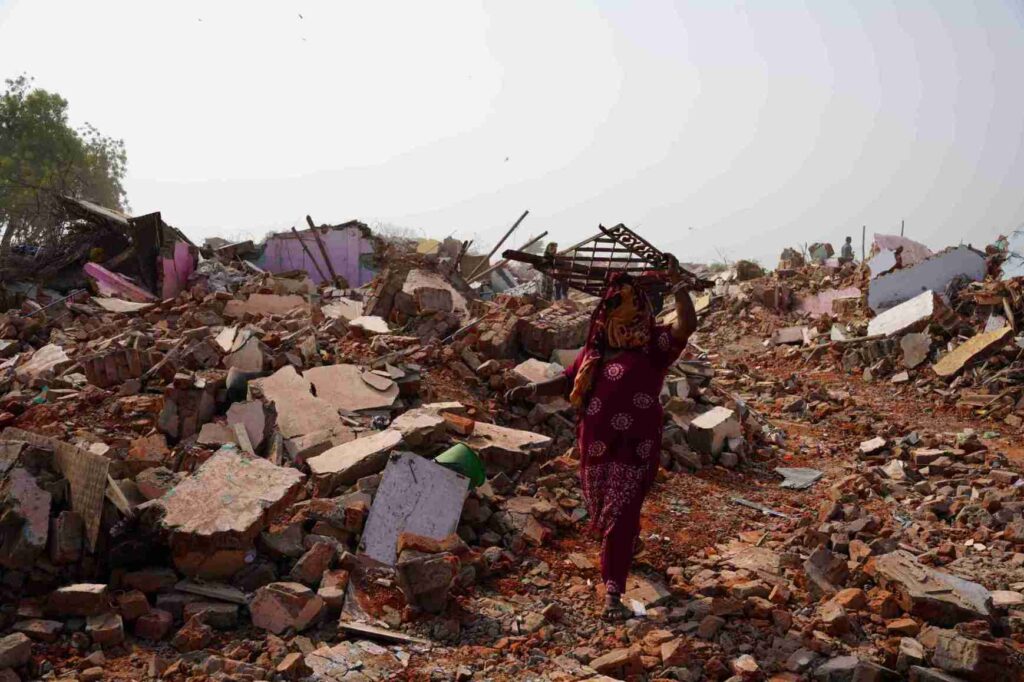
He added, “We worked hard—pulling rickshaws, manual labour. Our homes have stood here for more than 45 years. My children were born here. We have hope in God that someone will help us again. But now, they demand huge deposits for new houses, which we can’t afford.”
Another man recalled the peaceful coexistence his community had with Hindus for decades. “Our house was destroyed because they said it was a Bangladeshi house. We have lived here for 60 years. Across the street, there is a temple with electricity and water, but our homes were locked and destroyed. We live like brothers with the Hindus. No one listens to us. No one supports us.”
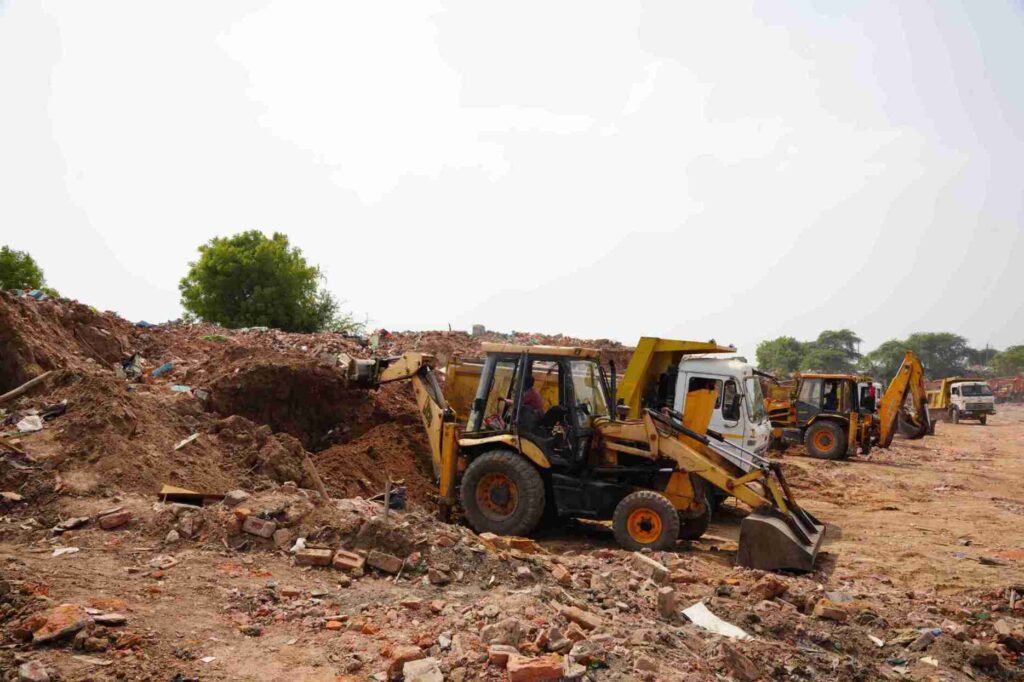
He appealed, “If the government were fair, they would not force us out like this. We have never done anything wrong. They beat people who resist, even those who come to help us. We have nothing left, no water, no electricity, and no homes.”
The demolition drive has left many families scrambling to find shelter amid rising rents and no clear assistance. Human rights advocates and local leaders have called for immediate government intervention to provide affordable housing and halt further displacements.
The Minority Welfare Committee group based in Gujarat has also condemned the action as ‘inhumane’ and demanded rehabilitation.






